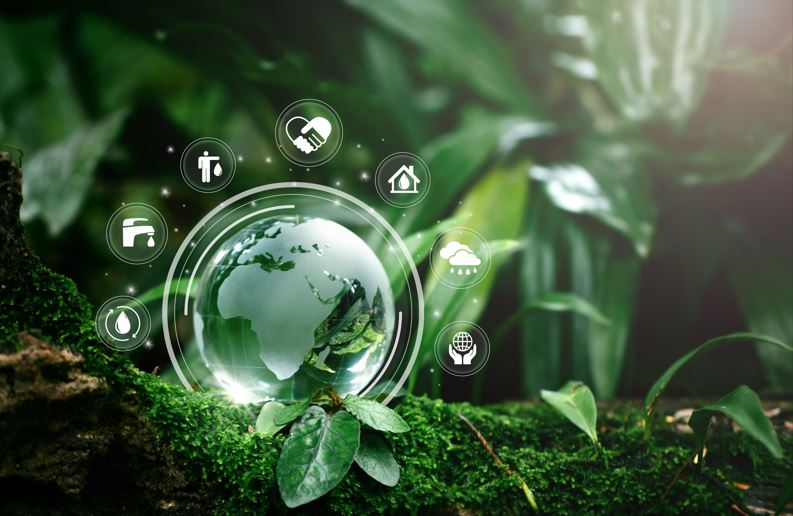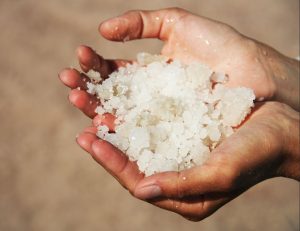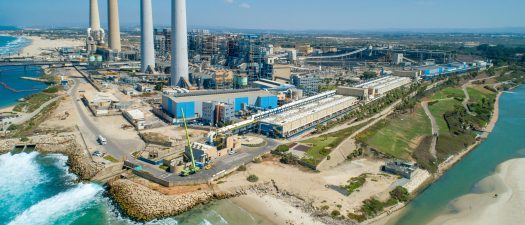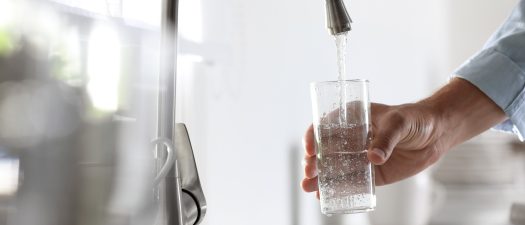Israel is a small state with a single coastline, and 7 mega-size desalination plants built or planned along this strip of coast, for a length of approximately 200 km, currently producing some 80% of.
From Sustainable to Self-Sustained: The Future of Seawater Desalination Merges Sustainability with Profitability

With decades of experience in seawater desalination, IDE has always posed itself at the forefront of innovation and ingenuity in this field. We pushed down water production costs, set new records, and improved the process, making it more sustainable and lucrative. When the Covid pandemic struck the world three years ago and imposed struggles on supply chains, it held back entire industries, drawing the clear conclusion that the desalination industry must be as independent as possible to keep providing one of our most vital sources – water. A possible way to pave the path for independence is utilizing SWRO plants’ brine by powering Desalination Brine Mining (DBM).
Harnessing Brine Power: Desalination Brine Mining (DBM) for Sustainability
Many chemicals used in SWRO plants can be produced directly from the plant’s brine, so it is only reasonable to recover these resources from the generally disposed brine. It is also an excellent catalyst to reduce CO2 emissions and minimize the industry’s carbon footprint. Besides the potential of becoming a self-sustained industry, this process has many economic and environmental benefits that we will introduce further ahead in this piece. Seawater desalination brine mining involves the extraction of valuable minerals from seawater while using the pre-concentration of minerals as an inherent part of the desalination process. Seawater desalination brine contains dissolved salts and minerals, mainly sodium (Na) and chlorides (Cl), but also magnesium (Mg), calcium (Ca), potassium (K), bromides (Br), lithium (Li), and others. These minerals are used in various industrial applications. For industries that also exploit large water quantities, combining onsite seawater desalination and mineral production from the desalination brine can result in significant economic and environmental advantages. In other words, DBM can naturally interweave in any desalination process and benefit it in many measures, as this combination offers a more economical, sustainable, and environmentally friendly alternative to traditional water and chemical sources.

→
Resource Recovery and Carbon Footprint Reduction: DBM’s Potential
One of the primary advantages of DBM is its ingrained sustainability. It is a compelling origin for resource recovery. Moreover, it could decrease the environmental impact of conventional mineral sources and traditional mining methods and minimize the need for the polluting transportation of chemicals to desalination plants.
IDE is currently producing a Net-Carbon Zero solutions suite that diminishes plants’ carbon footprint and enables the capture and reuse of carbon. Moreover, we have recently developed and patented a complete process that eliminates almost all external chemical purchases, using the sea itself as our primary source of chemicals, such as calcium and CO2, manifesting a fully Sustainable Desalination Process (SDP). Our new solution is carbon-negative as it recovers CO2 from seawater and utilizes it in the desalination process. It results in brine with low alkalinity discharged to the sea, allowing additional carbon to be captured by the ocean. As some parts of an SWRO desalination process are bound with CO2 emissions, achieving Net-Carbon Zero Desalination is through operating carbon-negative solutions that balance the inevitable, even if minimized, CO2 emission. This development embodies the Resource Recovery concept for generating CO2 and Calcium (in the form of CaO) for the desalination plant needs and, simultaneously, allow minimizing the usage of other chemicals such as NaOH, Ferric, and Antiscalants. Potentially, SDP ultimately powers a full-scale water desalination process with no external source chemicals.
Mineral Extraction: A New Revenue Stream for Desalination Sustainability
Desalination plants are consumers of chemicals mainly transported from remote locations and categorically stored under strict procedures and regulations. Self-production can also reduce environmental pollution by diminishing the necessity of complex, distanced transportation of these materials, a basic part of many desalination plants’ supply routines. Once a desalination plant self-produces chemicals for its needs, such as Carbon Dioxide (CO2) and Calcium, that are required in large quantities for post-treatment and exist abundantly in seawater, the meaning is clear: fewer expenses on purchasing commodities, reduced transportation of chemicals to the site, and less need for storage space. Extracting valuable minerals also provides an additional revenue stream for desalination plants, as the excesses will be sold to other industries, making the overall process more beneficial and significantly increasing the plant’s sustainability.
Overall, these solutions have the prospect of being environmentally sustainable and economically viable for reducing the environmental impact of diverse causes and generating a robust economic growth engine by providing a source of valuable minerals for various industrial applications and converting this industry into self-sufficiency.
Challenges Ahead: Technology and Innovation for Sustainable Resource Recovery
The main challenge is, of course, to develop the technological solution to recover these resources in the most economical, sustainable, and efficient way. IDE has worked hard to develop such a comprehensive solution, and we will reveal its full scope of possibility in the upcoming months. Follow us on our social platforms to stay up to date.
















